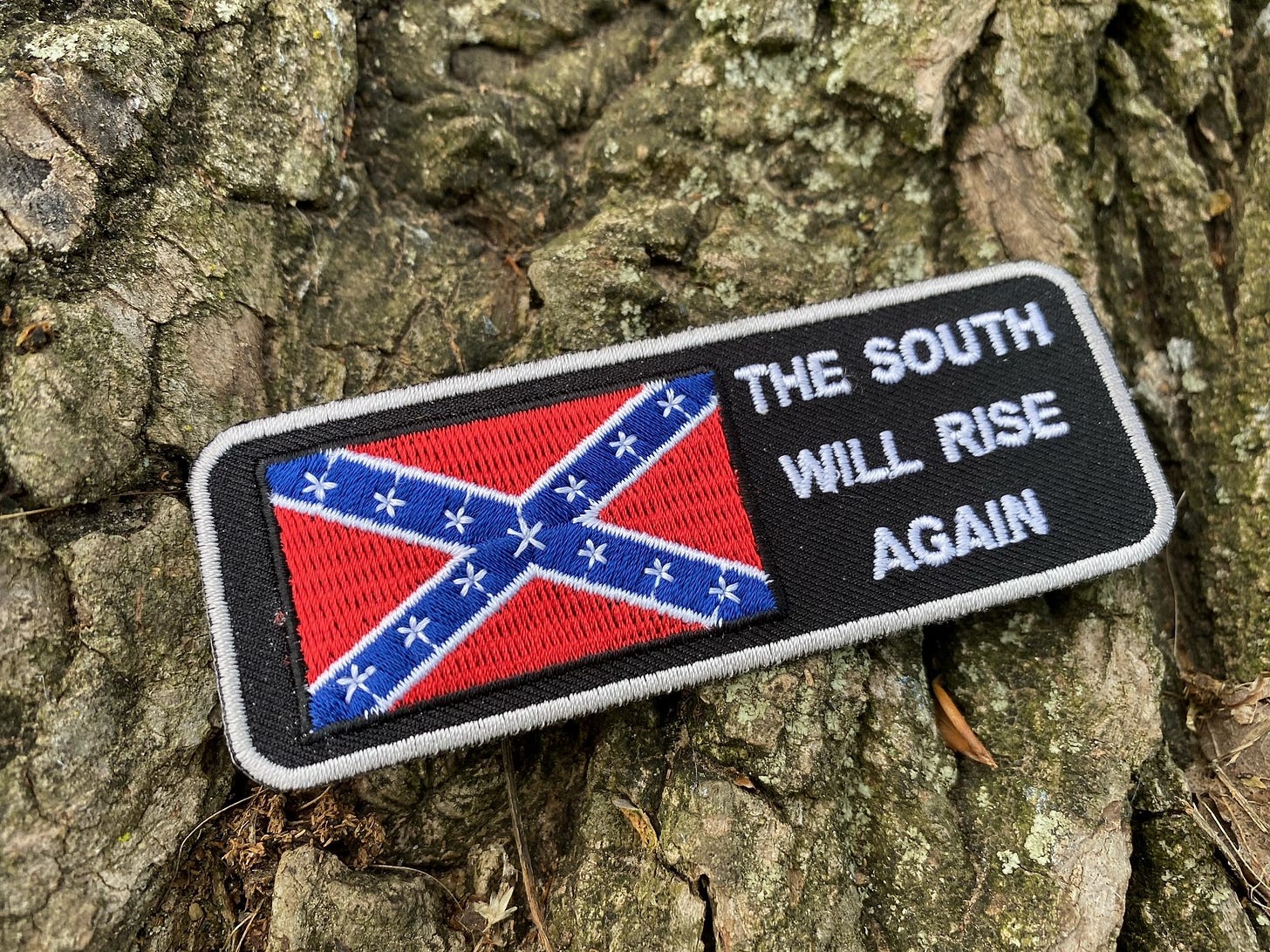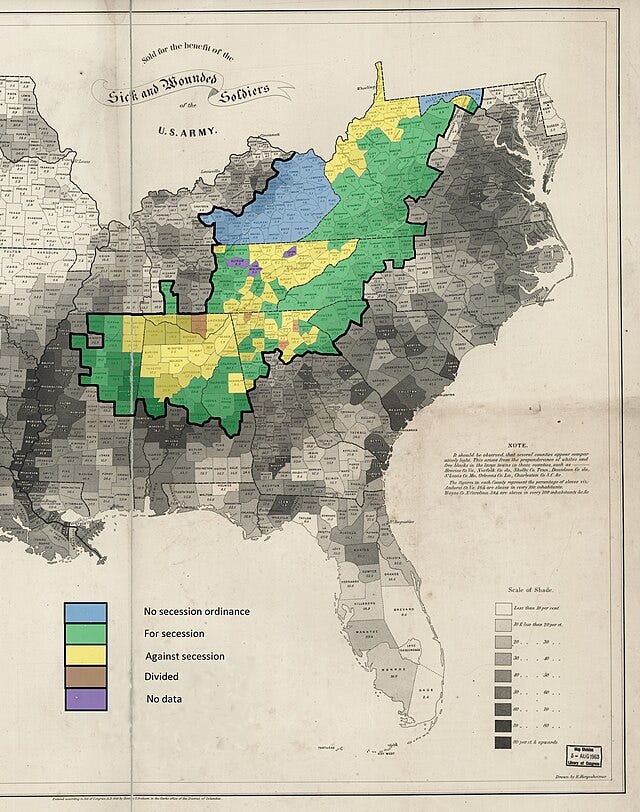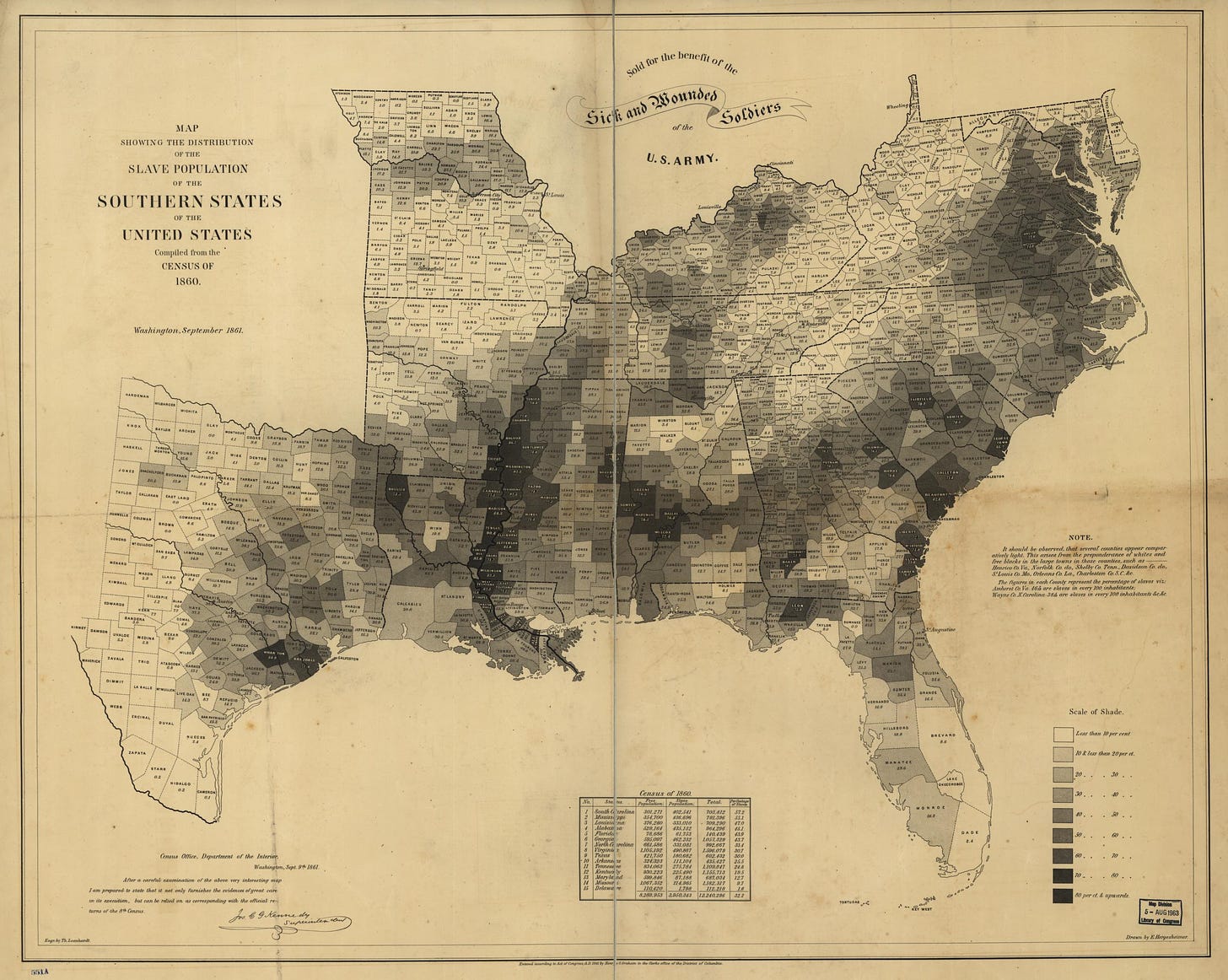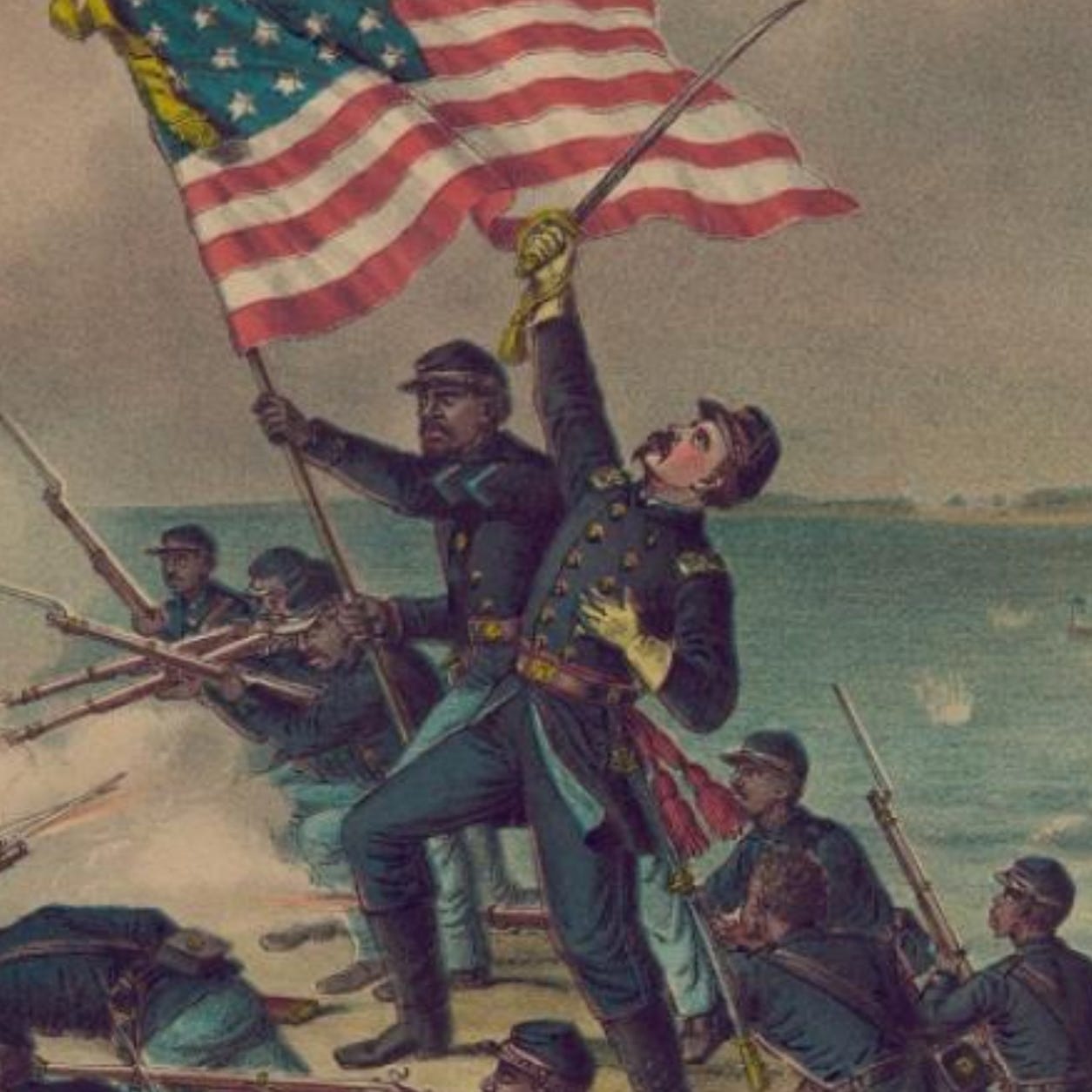The South Didn't Lose the Civil War. The Confederacy Did.
Some thoughts about how language can lead us astray.
Of course “The South” lost the Civil War. Everyone knows that. Some people defiantly announce, “The South Will Rise Again.” In 1959, singer Phil Harris sang “The South Shall Rise Again.” However, while such statements may announce your Lost Cause bona fides to the world, this use of language distorts the relevant history of the region during the Civil War era.
I couldn’t help but think about this as I was reading a piece in The New York Times about a United States flag found in a museum in Florida that once covered Lincoln’s coffin. The article began:
Rhonda Hiser found it by accident: a flag with a past.
It was in a museum in Florida — the Museum of Southern History, perhaps an odd place for a flag associated with Abraham Lincoln, whose presidency is defined by a war that the South lost.
Again, it seems innoncent enough, but let’s spend a little time today unpacking just what it might mean. Did the South really lose the Civil War? What exactly do we mean by the "South lost" the Civil War?
We can't mean that the Southern states lost the Civil War because four of those states, including, Missouri, Kentucky, Delaware, and Maryland remained loyal to the Union.
The experience of these Border States was certainly complicated and messy. Men from these states served in both armies. Loyalties were complicated. Slavery remained intact throughout much of the war, but in the end these states remained tethered to the Union.
It can't mean that white Southerners lost the Civil War because hundreds of thousands of them lived in these very same Border states.
In addition, significant pockets of white Southern Unionism existed throughout the region, including in places like east Tennessee, northwest, Georgia, and northern Alabama. Support for secession in these areas was divided or minimal at best. Confederate authorities expended a great deal of resources in an attempt to keep these ‘rebels’ in line.
Finally, let’s not forget the roughly four million enslaved African Americans, who called the South home and in some places within the Confederacy represented the majority of the population. Whatever we want to say about the direction of Reconstruction and beyond, they certainly did not lose the Civil War.
Enslaved people undercut the Confederate war in numerous ways beginning in 1861, from running away from their enslavers in search of freedom to serving in the United States Army.
I find it helpful to think of historian William Freehling’s reference to “Many Souths,” in his book The South vs. The South, when trying to wrap my head around the diversity of and loyalty of various populations that populated the region and help to explain Confederate defeat.
Claiming that the South lost the Civil War reinforces the Lost Cause by assuming a unified southern populace. We should take seriously historians like Gary Gallagher who have written convincingly about the extent of Confederate support and nationalism that existed during the war, but these pockets of internal resistance remained a thorn in the side of the Confederacy throughout the conflict.
This casual use of language also implies a certain inevitability to the Civil War and the direction of events throughout the postwar period. In casting the South as a monolith and equating it with the Confederacy itself suggests that everyone was advocating secession in the years leading up to the war and calling for war. Of course, we know that this was not true.
Even more problematic is the way this language masks the many opportunities to move the South or at least different segments of it in different directions after the war. Here I am thinking of the various fusion tickets like the Readjusters that united white and Black Southerners and placed them in power in Virginia for a few short years in the 1880s.
Download the app to your iPhone or Android so you can join me for future live discussions about a wide range of topics related to the history and memory of the Civil War. I will host one more free discussion so upgrade today to reserve your seat and chance to participate.
The broader Populist movement that gained strength at different times during the postwar period and that united Black and white southerners seems difficult to appreciate. We might even be tempted to conclude that these coalitions were destined to fail when we think of the South in such simplistic terms.
The Confederacy existed for four short years. The South has always been much larger both spatially and temporally. Its history has always been much richer and more complex. Decisive moments of change can be found at every point in its long history.
Let’s not lose sight of this fact. The South didn’t lose the Civil War. The Confederacy did.








Speaking of word choice, interesting to me is the premise underlying the basic framing: Lincoln’s presidency was apparently defined NOT by winning the Civil War but by the South losing it. That framing not just deprives him of credit but casts him as villain.
As a 67-year-old white woman who was born and grew up in the Deep South in a Georgia county that did not yet exist in 1860, I thank you for writing this too.
Although graves in north Georgia, where ancestors on both my paternal and maternal sides are buried, some with chiseled headstones memorializing the Confederate companies in which they fought, I somehow avoided absorbing the "Lost Cause" ideology. I have some theories about why, but I digress. Even so, I recall as a young person being asked by a person whose family wasn't yet in the country in 1860 why we "couldn't let go of the Civil War" when I was far more interested in the Revolutionary War. And I remember having telephone operators in northern cities laugh at my Southern accent and university professors from Ivy League schools express genuine surprise that I—a girl AND a Southerner—had the highest grades in most of my math classes. It's quite easy to lump people into groups—to project onto entire groups of people based on any number of characteristics—including geographic regions—we all do it to an extent. It's a way to try and contain our fear of the unknown, even fears that we didn't have until someone with an agenda (money or power or both) exploits us and tells us lies—like being against all immigrants because they're cat-eaters. All Southerners are stupid and ignorant Confederate flag-waving morons because someone said it and no one challenged it.
As a child, I saw "colored" and "white" waiting rooms at my doctor's office, asked my mother why the Black friend I'd just played with in a cotton field (really) couldn't sit with us in the movie theatre, and as late as 2010, was invited to a high school "class" reunion and then told offline that it was a "white only" reunion. I said no initially, because I said that half the people I wanted to see wouldn't be there, and then, mysteriously, it became a "true" class reunion and I decided to go. I don't know if I had any influence on that decision, but I hope so. I haven't been back, so I don't know if they kept it up. (By the time I graduated, less than a decade after court-ordered desegregation took place, the class was 51% Black and 49% white.)
I can't defend any of that. I couldn't reconcile it when I was a child then and I can't now. Sadly, I can report that the majority of voters in my home county couldn't bring themselves to vote for a highly qualified multi-racial woman for president, but at the same time, quite a few more than I expected did. Having said all that, though, I will remind you that until Vietnam, people who lived in the Confederate states were the ONLY WHITE AMERICANS TO LOSE A WAR and suffer the ignominy of that, despite the fact that the "cause" for which they were fighting was morally reprehensible. It's only been 150 years—three generations. No excuse, just an explanation. We anomalous reading and thinking Southerners were there in 1860 and we're still here.
I don't have any answers for how to speed the arc of justice and reconciliation, but keep writing about it, Kevin. Keep teaching and leading tours and sharing your rigorously gathered facts. And so will I.